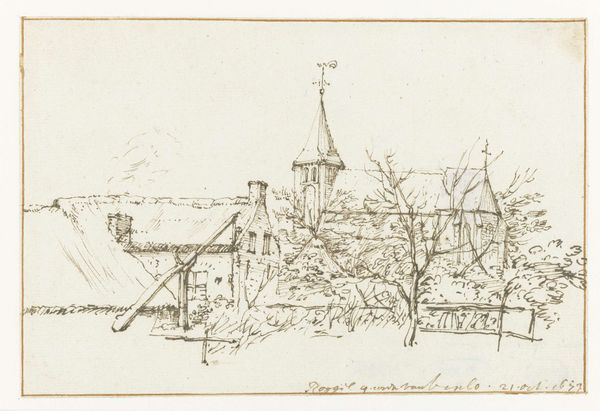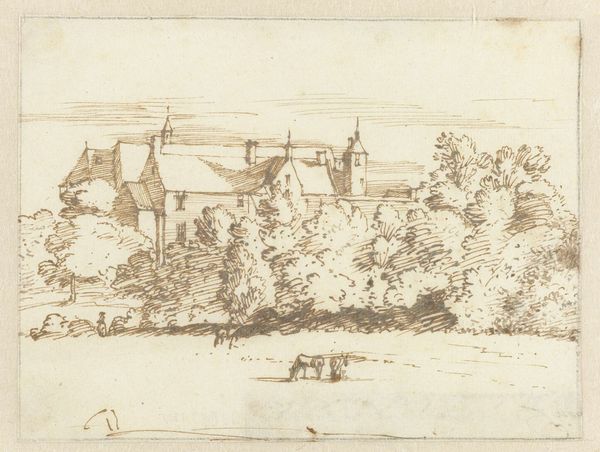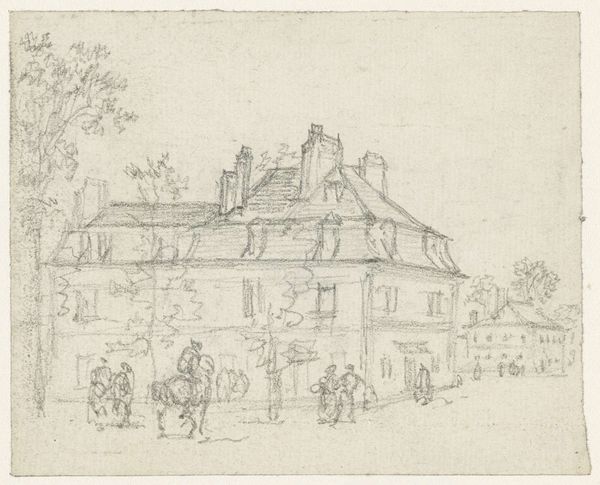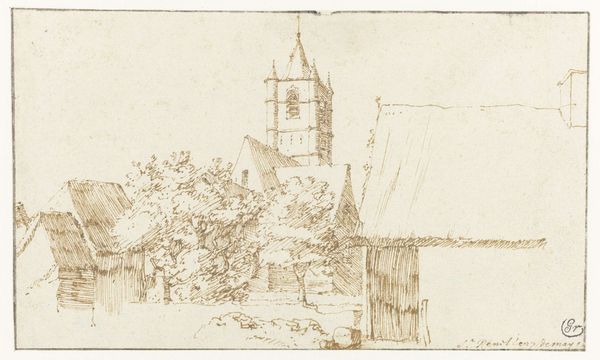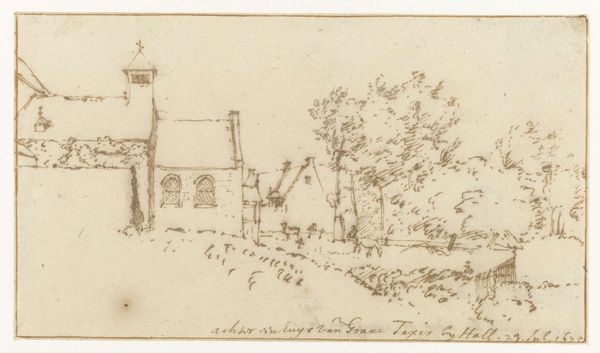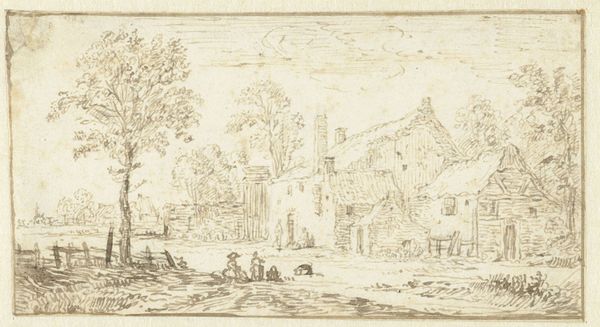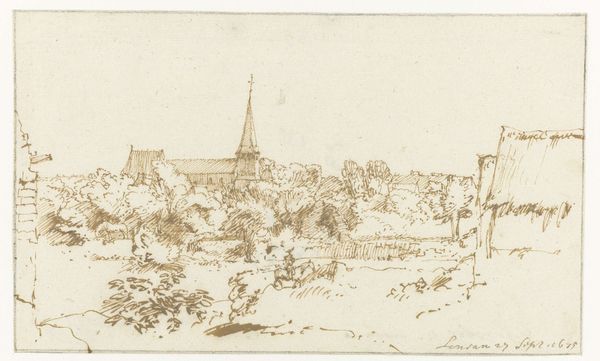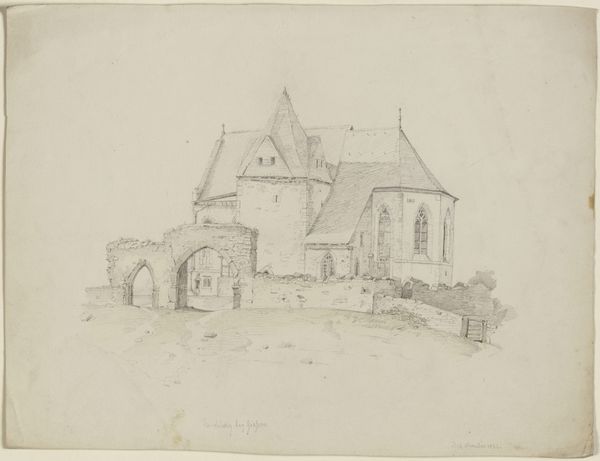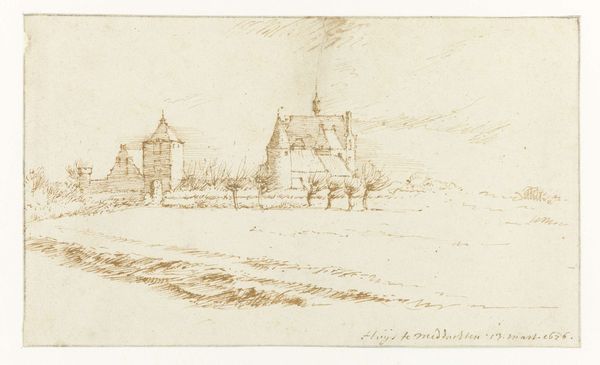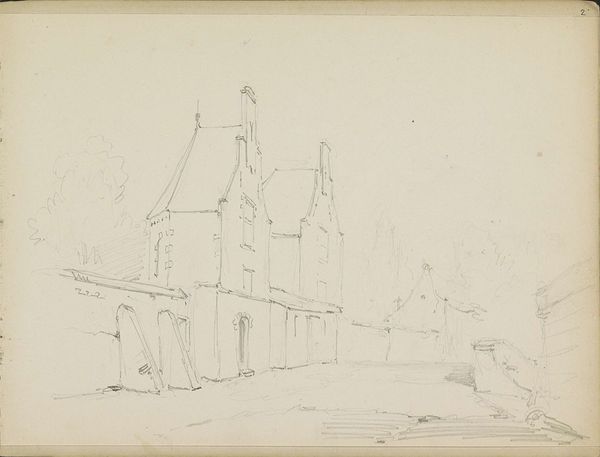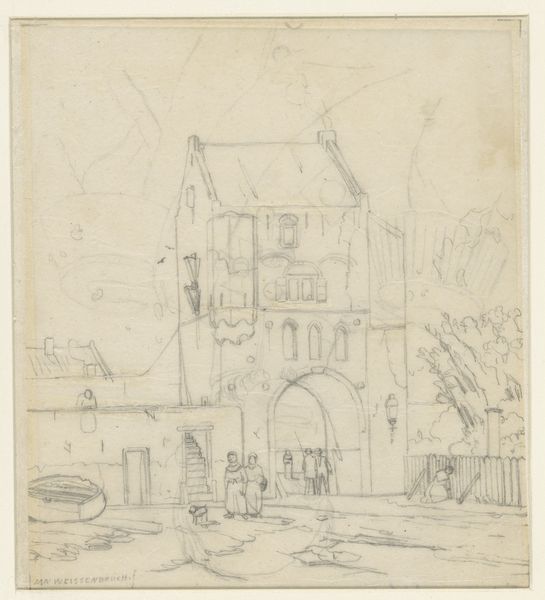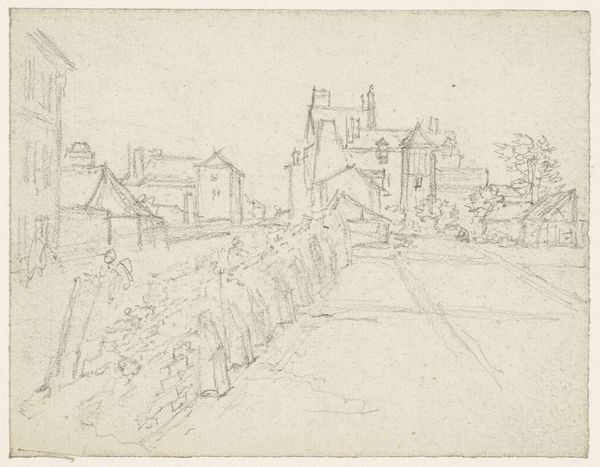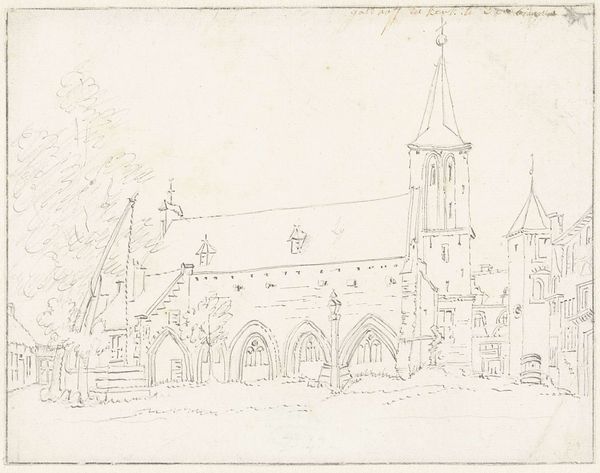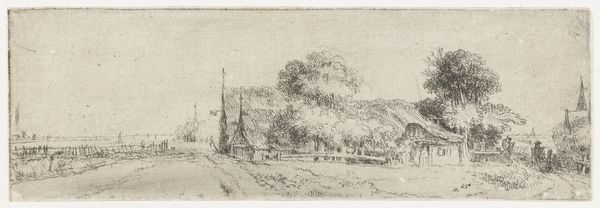
drawing, etching, ink
#
drawing
#
dutch-golden-age
#
etching
#
landscape
#
etching
#
ink
Dimensions: height 110 mm, width 156 mm
Copyright: Rijks Museum: Open Domain
Constantijn Huygens created this drawing of Beverloo with pen and brown ink on paper, sometime in the 17th century. The relative ease of pen-and-ink drawing lent itself to Huygens's work, which often depicted architecture and landscapes. It allowed for the rapid recording of observations, and fostered a sense of immediacy between artist and subject. The drawing's network of lines captures the essence of Beverloo's buildings and people. There is a texture that emerges from the cross-hatched shading, which gives depth to the scene. This way of drawing creates an impression of the place, while also being highly reproducible: drawings were often translated into prints at this time. Consider the social context in which this work was made. Huygens was a wealthy and well-regarded man; he was in a position to depict Beverloo, perhaps, because he was passing through. The act of drawing, in this instance, speaks to a social relationship just as much as a relationship with the landscape itself.
Comments
No comments
Be the first to comment and join the conversation on the ultimate creative platform.
